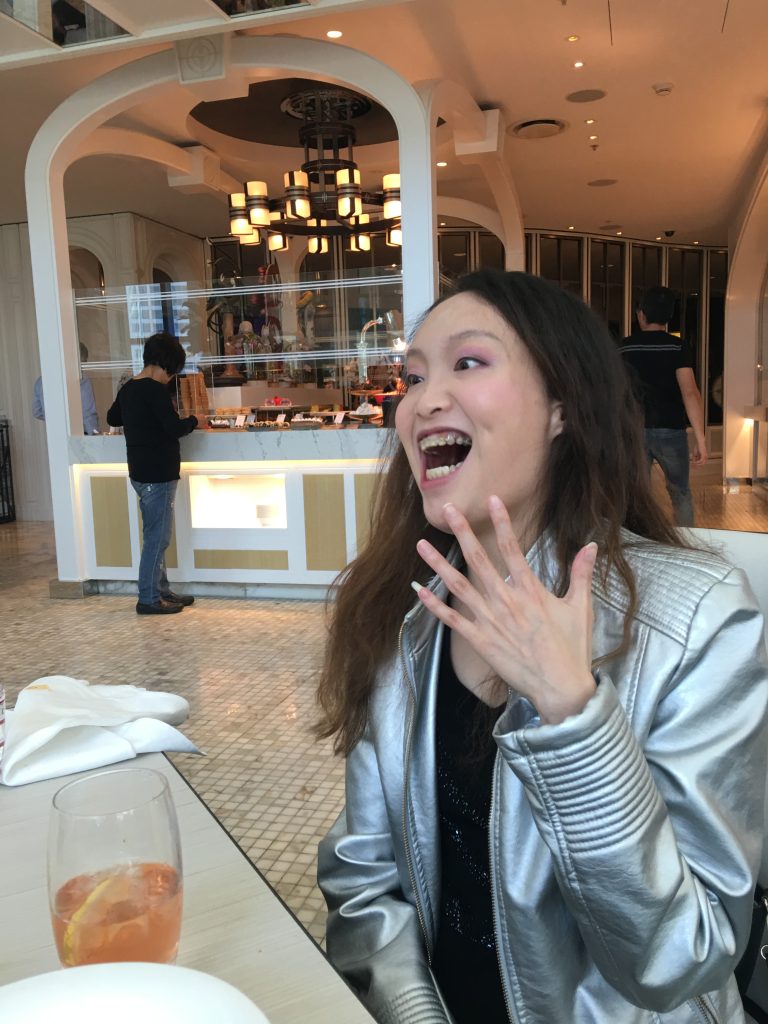Laughter Isn’t Just Fun – It’s Freedom
“Laughter is the best medicine.” You’ve heard it before. But for those living with long-term illness, or disability, laughter becomes more than a punch-line.
I first learned to laugh at my sickness and disability in my late 20s, before my first hip replacement surgery. My right hip would grind and ache. Rather than letting frustration build, I found myself laughing and saying, “I’m not 28 – I’m 82.” or “Are you a grandma?” After my right hip replacement surgery, I took a photo of my orthopaedic surgeon’s laptop screen showing the X-ray image of my broken left hip and new right hip (a hybrid of metal and cement). Days later when I looked at the photo, again, I thought to myself, “If only my grandparents were still alive. I would show them this picture and tell them, “I beat ya to it!”
It wasn’t denial. It was relief. Laughing at my situation helped me own it and now, share it with you without inviting pity.
Freedom is the state of being in control of something or someone. Freedom is the ability to make choices about your life, your situation, your circumstances. This is when laughter becomes a kind of freedom. When you laugh in the middle of hardship, you’re choosing not to let that hardship control your spirit. Laughter lets you take back emotional control even when physical circumstances feel out of whack.

The Awkwardness Around Disability
Molly Burke, a blind social media star and motivational speaker, beautifully explains why humour matters. In an interview, she said: “When people meet me for the first time, they’re like tiptoeing around my blindness… so I try to make jokes so people are disarmed and can say she’s not the elephant in the room, we can talk about it.”
I really like her point. If you joke about your own struggles – blindness or chronic illness – you’re not brushing it off. You’re giving others permission to relax. Molly also often says words like “blind girl problems” which I find funny. I called out, “blind girl problems” a couple of times with someone who was supporting me, she laughed and said, “We can only laugh about blindness and disability when you’re around, Nikki!”
Learn to Laugh at Life’s Little or Large Difficulties
Life throws all sorts of challenges and difficulties – little ones like missing a bus or forgetting your keys, and LARGE ones like heart problem, hip problem, hearing problem, liver problem, brain and spine/neck problem, singleness, blindness…
People often assume that “serious” conditions require a serious tone 24/7. Yes, cancer is serious (if you have it). Yes, liver problem is serious. Yes, being blind is not a joke. But why spend ALL your time and energy being so serious about it. Open that mouth. Bend that lip. Laugh!
If you don’t find ways to lighten the load, the load will fall on you (imagine a full load of clothes falling down on you – and the bucket too).
“A day without laughter is a day wasted.” -Charlie Chaplin
Science and Faith Agrees – Humour Heals
Research supports what the heart already knows: laughter boosts endorphins, strengthens the immune system, reduces stress, and even eases pain. It may not cure your condition, but it can certainly change your experience of it.
At the Royal Children’s Hospital in Melbourne, Clown Doctors go around seeing sick kids to bring smiles, laughter, and happiness (yes, some people find clowns creepy, but that’s not the point). The idea is simple: laughter helps children cope better with illness. It lightens the atmosphere and gives their little bodies a rush of joy.
Viktor Frankl, Holocaust survivor and psychiatrist says, “Everything can be taken from a man but one thing: the last of the human freedoms – to choose one’s attitude in any given set of circumstances.” Choosing laughter doesn’t mean you’re not taking your life seriously. It means you’re choosing joy despite your circumstances.
Finally, “a cheerful heart is good medicine, but a crushed spirit dries up the bones.” -Proverbs 177:22 NIV
Laughter, joy and a hopeful heart are like natural medicine. They lift us up and keep us going. But when we feel deeply sad or weighed down, it can affect our whole body. God encourages us to find joy, even in tough times.
